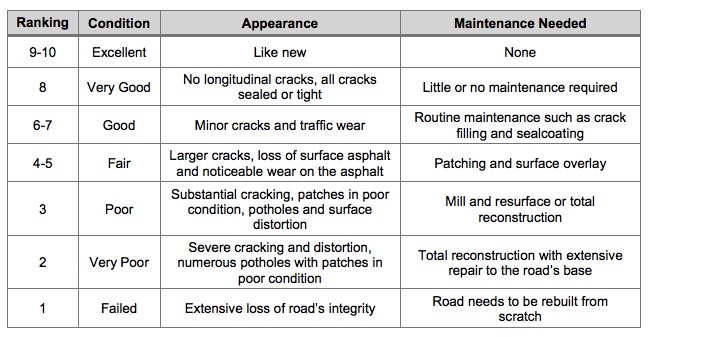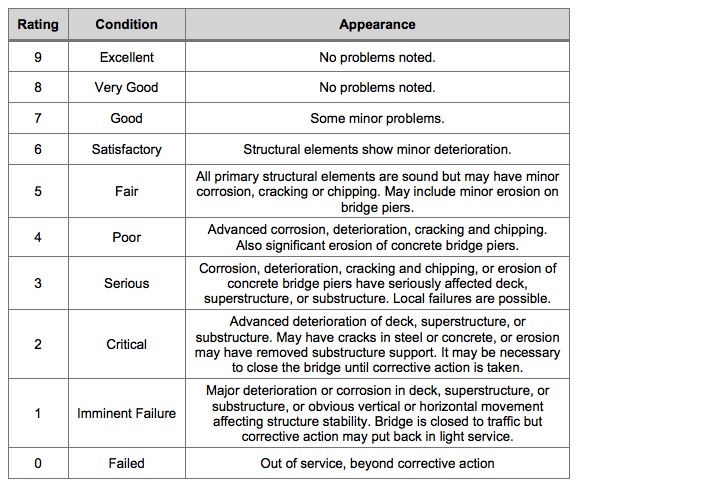THE MACKINAC CENTER FOR PUBLIC POLICY
Introduction
Michigan’s roads and bridges are a pressing concern. A Gallup poll in 2014 found their condition to be a top concern of voters. Surveys commissioned by the Michigan Chamber of Commerce in 2014 and Fix MI State in 2018 obtained similar results.
Roads are vital to Michigan’s economy. Approximately $860 billion in freight moves through Michigan’s highways, rails and ports every year. Thirty-eight percent of the half-trillion annual trade between U.S. and Canada’s flows though Michigan.
This study examines the funding and condition of Michigan’s roads and bridges and presents policy recommendations regarding them. The first section of this study describes the different types of roads in Michigan, which government entity is responsible for each type and their current estimated condition. The section after that explains how road funding works. The next section then discusses how public goods such as roads should be priced and funded, based on standard economic theory. It also attempts to measure the level to which Michigan’s roads are underpriced and underfunded. The final section concludes with some policy recommendations.
Current Conditions of Michigan’s Roads and Bridges
How Road and Bridge Quality is Evaluated
The Pavement Surface Evaluation and Rating system was developed by the University of Wisconsin Transportation Information Center to evaluate and rate a road’s condition. The PASER system ranks a road on a 1-10 scale by trained observers who assess the road and assign the ranking. Graphic 1 provides more information about the PASER scale:
Graphic 1: PASER Rankings
The Michigan Transportation Asset Management Council, a legislatively created group comprised of state and local government representatives, advises and assists Michigan’s road agencies. It surveys and collects data on the conditions of Michigan roads.4 TAMC condenses some of the PASER ratings into three categories to rate road conditions. It groups ratings 1-4 into one category called “poor,” ratings 5-7 are grouped together as “fair” and ratings 8-10 are grouped and called “good.” These categories help government agencies identify what type of work needs to be done on a road. Generally speaking, good roads need little or no maintenance, roads in fair condition need routine and preventative maintenance and roads in poor condition require structural improvements.
Bridges in Michigan are rated using the National Bridge Inventory Rating Scale, which rates bridges on a 0-9 scale. It was established by the Federal Highway Administration, and rates three elements of a bridge: the deck, superstructure and substructure. The entire bridge is rated based on the lowest score of these three elements. In other words, if any one of these components of a bridge is rated “poor,” the entire bridge is given a “poor” rating. Graphic 2 summarizes this rubric.
Graphic 2: National Bridge Inventory Rating Scale
As with road ratings, TAMC condenses these ratings into three categories, with ratings 0-4 grouped into the “poor” category, 5-6 are considered “fair” and 7-9 are grouped together as “good.”
State Trunkline Roads and Bridges
Roads in Michigan are grouped into two general categories: trunkline and non-trunkline roads. Trunkline roads are state roads that carry an “I,” “US” or “M” designation. State trunkline roads comprise 8 percent of Michigan road miles yet carry 53 percent of all passenger traffic and about 70 percent of all truck traffic.
A centerline mile is the total length of the road measured along its centerline. The 9,668 centerline miles of trunkline roads correspond to approximately 30,000 lane-miles, or the number of centerline miles of road multiplied by the number of lanes. Building and maintaining trunkline roads is the responsibility of the Michigan Department of Transportation.
Graphic 3 summarizes the condition of Michigan’s trunkline roads in 2017. Twenty-three percent of the lane-miles of trunkline roads are in good condition, 52 percent are in fair condition, and 25 percent are in poor condition.
Graphic 3: Condition of Michigan’s State Trunkline Roads, 2017
Overall, for state trunkline roads, the glass could be reasoned to be half full. On one hand, 75 percent of the lane miles carrying over half of Michigan’s passenger traffic and nearly three-quarters of its truck and commercial traffic are in fair or good condition. Most of these important roads, then, need only routine and preventative maintenance to maintain or improve their quality. On the other hand, MDOT forecasts that the condition of these roads will worsen substantially over the next several years.
MDOT projects the “remaining service life” of a lane mile: how long a road has before it needs to be rehabilitated or reconstructed. The good news is that about 85 percent of the lane miles on trunkline roads are projected to have a remaining service life of three years or more in 2018. But MDOT projects that by 2024, only about one-third of trunkline roads will have a three-year or longer RSL. This means that two-thirds of Michigan’s trunkline roads will fall into the poor rating category and need to be reconstructed by 2024. Further, MDOT estimates that trunkline pavement condition peaked in 2008 and that in each year between 2018 and 2024, 7 percent of trunkline miles, or 2,000 lane-miles, will deteriorate into poor condition until only one-third of trunkline miles are in fair or good condition.
Michigan has approximately 4,500 state trunkline bridges. As Graphic 4 shows, 30 percent were in good condition, 65 percent in fair condition and only 5 percent were in poor condition in 2017.
Graphic 4: Condition of Michigan’s State Trunkline Bridges, 2017
According to MDOT forecasts, trunkline bridges, like trunkline roads, will deteriorate over the next several years. But their deterioration will be more gradual, with nearly 93 percent still being in fair or good condition by 2024.
Download full version (PDF): Roads in Michigan
www.mackinac.org
The Mackinac Center for Public Policy is a nonprofit institute that advances the principles of free markets and limited government. Through our research and education programs, we challenge government overreach and advocate for free-market approaches to public policy that free people to realize their potential and their dreams.
Tags: Mackinac Center for Public Policy, MDOT, MI, Michigan, Michigan Department of Transportation










 RSS Feed
RSS Feed